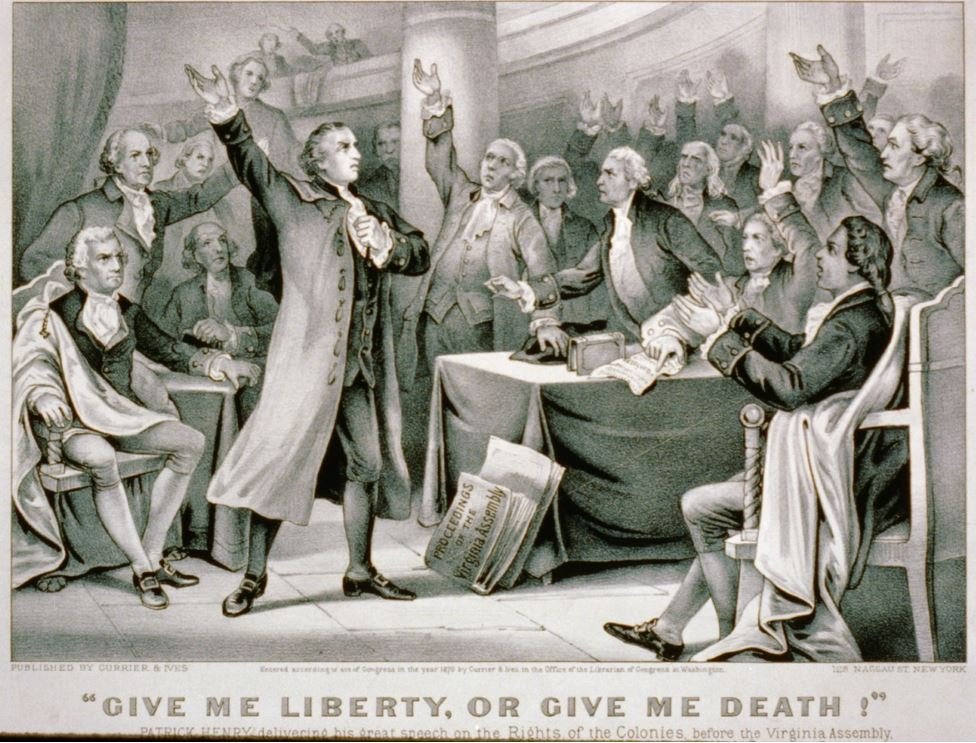
July 4 is Independence Day in the US. It is the birthday of the United States of America. It is the anniversary of the day on which the Declaration of Independence was adopted by the Continental Congress—July 4, 1776. It is the day when the 13 US states declared their independence from England and resolved to be free.
In 1775, Patrick Henry, the American patriot said: “Give me liberty or give me death.” He was pleading for Virginia to join the other 12 colonies in their struggle to be free from English rule. But his words have taken on a far wider meaning than that one historical event. They express one of the deepest longings of the human heart. All people want to be free.
Freedom, for individuals and nations, means to be themselves—to live their own lives, to think their own thoughts, to seek their own answers and to decide their own national destinies. In personal and social life, the basic struggles of human nature can be interpreted as efforts to be free.
But freedom does not mean avoidance of all responsibility, elimination of all constraints to do one’s own thing without any regard to the effect on others or society at large.
Freedom is not only a privilege, it is also a responsibility. Look at your own children. When do we start giving them freedom? It is when we begin to see that they are adults. They have no freedom that does not carry with it corresponding responsibilities; and anytime they neglect these responsibilities, they run the risk of losing their freedom.
Freedom must be exercised within certain boundaries. True freedom is yoked to responsibility. For example, in family life married people are yoked to their spouses or to heavy family responsibilities, or to a mortgage. Taking on that yoke of responsibility prompts them to use their abilities to the utmost. Without a sense of responsibility to their families, to their communities and to God, people waste away emotionally, morally and spiritually.
Look at the drug addict. He demands the right to do as he pleases. He feels that those medical warnings and legal prohibitions restrict his freedom. When he defies those restraints, he is no longer free. Drugs have taken control of his life. He is now enslaved by the drugs. His so-called freedom has become the source of a curse. Thus, unbridled and undisciplined freedom can cause disaster.
Along with responsibilities, liberty demands loyalty. As in personal life, so it is in public life. No democracy can survive and thrive without the loyalty of its citizens, not their blind loyalty but their intelligent loyalty. Let us remember the words of President John F. Kennedy and take them to heart: “Ask not what your country can do for you, but what you can do for your country.” That is what it takes to build and maintain a democratic form of government.
Freedom also carries with it consequences. For example, the freedom to drive a car carries with it an awesome weight of responsibility for the damage that an out-of-control car can do. The freedom to eat carries the responsibility to choose healthy foods and not to overindulge.
There are many things in life which can either make people a servant or a master of their lives; one has to choose. Money, work, sex, social acceptance can serve as beautiful servants or cruel tyrants. All of them have their role and proper place in a person’s life, but when they control his or her life, they can destroy one’s freedom and diminish one’s manhood or womanhood.
Furthermore, when we think of freedom we are reminded of the sacrifices that have been made on our behalf. Our country, or adopted countries, that we live in, came into existence because men and women gave their life’s blood on our behalf. Each generation over the years has literally been willing to lay down their lives for the freedom of their country.
When we think of our spiritual liberty, we realize that the cost of freedom is very high. For Christ it meant death on Calvary. Our freedom has been bought by Christ’s great sacrifice to give his life as a ransom for our salvation.
Finally, because we are Christians, we belong to Christ. Our life is His domain, where He is to reign supreme. That means that no one else or nothing else in all the world is to gain control of our lives. We realize that we cannot serve two masters. We have to serve one Master and subject our will to His.
This concept, when properly understood, does not diminish our freedom, but rather protects it. The lordship of Christ is not a tyranny, but a love relationship. It is a voluntary commitment to One who knows us better than we know ourselves, to One who wants nothing but the best for us, and to One who loves us enough to die for us. There is nothing in that commitment that would limit our personal growth or set artificial boundaries upon our life. To be mastered by Christ is to be set free to enjoy and experience life to the fullest. It is one of life’s greatest paradoxes: when we subject ourselves to Christ, we find our real freedom. As He told us, “If you hold to my teaching, you are really my disciples: Then you will know the truth, and the truth will set you free” (John 8:31).



Be the first to comment